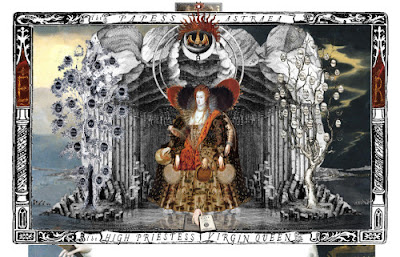The following is my highly selective choice of events upcoming this month at Threefold Educational Center in Chestnut Ridge, New York. There’s a lot more. Click here. From the publicity:
Piano Trios Plus!
Sponsored by Rockland Symphony Orchestra
Sunday, April 10 at 4 p.m.
Join us for an afternoon of beautiful music at the third performance of Rockland Symphony Orchestra’s 2015-16 Chamber Concert Series. The program will feature the Melos Trio & Friend performing:
- Dvorak’s Piano Trio in E minor Op. 90 “Dumky”
- The Phantasie Trio in C minor (1907) by Bridge
- Beethoven’s Piano Quartet in E flat Op. 16
 The Melos Trio & Friend are Fredrica Wyman (piano), Karen Gilbert (violin), Edward Simons (viola), and Stephen Reid (cello).
The Melos Trio & Friend are Fredrica Wyman (piano), Karen Gilbert (violin), Edward Simons (viola), and Stephen Reid (cello).
Admission: $20 General, $15 Seniors, $10 Children (ages 12-18). Children under 12 free.
Piano Recital by Marcus Macauley
Fourth Year Dornach Fundraiser
Sponsored By Eurythmy Spring Valley
Sunday, April 17 at 4 p.m.
This afternoon recital will include:
- Three Preludes and Fugues from Bach’s Well-Tempered Clavier
- Brahms’ Four Piano Pieces, Op. 119
- Schubert’s Piano Sonata in B-flat Major, D.960
 |
| Marcus Macauley |
Marcus Macauley has been playing the piano and writing music for most of his thirty years. Born in Seattle, he won his first concerto competition at age 11. Before graduating high school, he had performed with seven orchestras, including Seattle Symphony, and won six national composition awards. A graduate of the Eastman School of Music, where he premiered dozens of works, he has collaborated with such musicians as Brad Lubman, Thomas Buckner, and Truls Mørk, and had master classes with George Crumb, Mario Davidovsky, John Perry, and Charles Rosen. Since 2009 he has been a resident musician for Eurythmy Spring Valley and toured with eurythmists throughout the U.S. and in Switzerland, Taiwan, and China. His principal teachers have been pianists Michi Hirata North, Peter Mack, and Vincent Lenti, and composers Janice Giteck, Ricardo Zohn-Muldoon, and Carlos Sanchez-Gutierrez.
Suggested donation: $20/$10 students and seniors/$5 children. All proceeds to support the Fourth Year, Class of 2016 Graduation trip to Dornach, Switzerland.
Celebrating Shakespeare:
A Performance to Honor
the 400th Anniversary of the Bard
Sponsored By Threefold Educational Center
Saturday, April 23 at 7:30 p.m.
[On the 400th anniversary of his death,] an evening of eurythmy, speech, sonnets, dramatic monologs, and a eurythmical exposition of Act II of A Midsummer Night’s Dream.
Admission: $16 suggested donation.
Christian Rosenkreutz
with Rev. Bastiaan Baan
Sponsored by the Seminary
of the Christian Community In North America
Monday, April 25 through Friday, April 29
This course will take place on the occasion of the publication of the English translation of The Chymical Wedding of Christian Rosenkreutz with commentary by Bastiaan Baan.
The Chymical Wedding of Christian Rosenkreutz is one of the most important writings of esoteric Christianity, first published anonymously in German in 1616. It is an allegorical story divided into seven journeys about how Christian Rosenkreutz was invited to a castle to assist the “chymical wedding” of the king and queen.
The word “chymical” refers to alchemy, or the uniting of opposites—hence, the sacred wedding. It is a book concerned with the inner transformation of the soul. Bastiaan Baan’s interpretation and commentary makes this work accessible to readers of today, and shows the special language used by the author to express the meditative content of his text.
Fee: $150.
In Concert: Magical Strings
Sponsored by the Fellowship Community
Wednesday, April 27 at 4:30 p.m.
 |
| Philip and Pam Boulding |
Experience the vibrant ringing sounds of Magical Strings, as Philip and Pam Boulding bring their Celtic Harp & Hammer Dulcimer to the Fellowship Community! Their music, described by the Washington Post as “sonically gorgeous,” will carry you to sublime realms with ancient airs and have you dancing to lively jigs and reels. Their unique compositions and stories will take you to Ireland and beyond. Philip and Pam, who have been touring internationally for 37 years and have recorded more than 20 albums, will be performing on their own hand-crafted instruments.
Admission is free; donations are welcome.
From the Victorian to the Modern Poets:
A Poetics Course
with Coralee Frederickson, Ph.D.
Sponsored by Eurythmy Spring Valley
Thursday April 28, 9:35 a.m. to 2:55 p.m.
Friday, April 29, 9:35 a.m. to 12:25 p.m.
 |
| Wilfred Owen |
Continuing on from her course on American Romantic Essayists and Poets, Coralee Frederickson, Ph.D., will draw us from Alfred Lord Tennyson and Gerard Manley Hopkins, in the late 19th century, into the modern, poetic voices of the 20th century, beginning with the work of Wilfred Owen, a representative of World War I poetry. The diverse styles of e. e. cummings, Dylan Thomas, and Seamus Heaney will be explored, among many others.
Coralee Frederickson, Ph.D. has been the School Leader at Den norske Eurytmihøyskole, in Oslo, Norway, as well as the Program Director of their B.A. Completion Program, which was hosted over two cycles at ESV. Coralee is now the Co-Director of the Alanus University M.A. Program in Eurythmy, which is based in Alfter, Germany, and is also bringing a cycle of their program to our campus.
Course fee: $75.



























































































